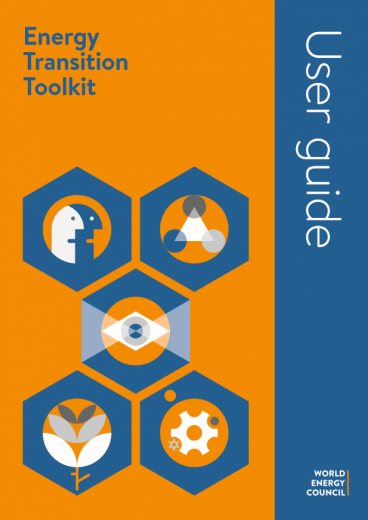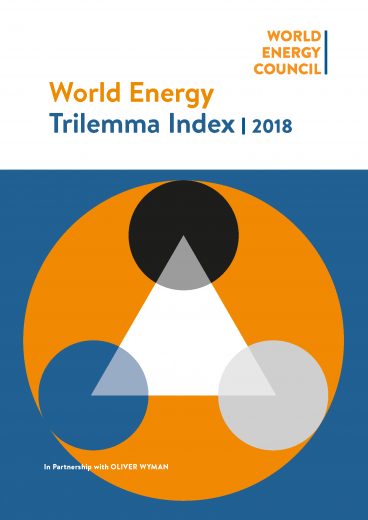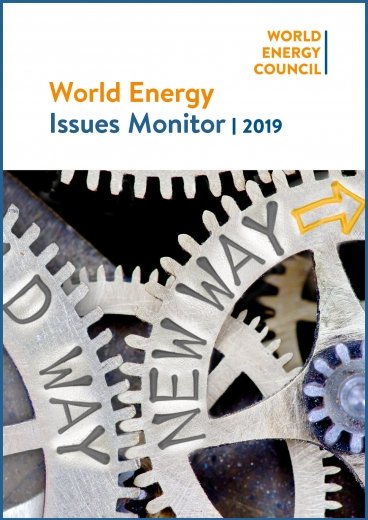Our organisational structure
The World Energy Council is the world's principal and impartial network of energy leaders, pioneers and practitioners. The organisation has a coordinating Secretariat in London, United Kingdom, under the direction of the Secretary General who reports to the Officer's Council, under the leadership of an elected Chair.
Find out more about our people
The key functions of the World Energy Council are guided by the Standing Committees, made up of elected members from across the world. The Council gathers annually for an Executive Assembly to agree the strategic direction of the organisation.
The World Energy Council's National Member Committees operate independently under a regionalised structure, with elected Regional Vice Chairs to oversee activities and ensure coordination.
The World Energy Council’s funding is devolved to reinforce the organisation's neutrality.
Member committees
The World Energy Council has Member Committees in nearly 100 countries, including the largest energy-producing and energy consuming nations.
Corporations, organisations and individuals can join the World Energy Council’s network through the National Committee in their country of interest. Membership is made up of federated Member Committees representing the broadest possible range of energy and energy-related interests in their countries:
The World Energy Council is the world’s most influential organisation covering all aspects of the energy sector. Joining a National Member Committee will help to empower your organisation, enhancing your voice at the national, regional and global level.
Join the World Energy Council now. Help influence energy agenda by promoting an affordable, stable and environmentally sensitive energy system for the greatest benefit of all.
Officers Council
The officers of the World Energy Council - together with the Secretary General - form the Officers Council, which has responsibility for managing the World Energy Council’s business affairs, property and to support the development of its global activities. The Officers Council consists of the World Energy Council Chair, Co-Chair, Regional Vice Chairs and Standing Committee Chairs. It operates under a ‘Code of Conduct’ which applies to all Officers, as well as to the Secretary General.
Executive Assembly
The Executive Assembly is the annual general membeship meeting of the World Energy Council. The members have ultimate authority in the governance of the World Energy Council as provided in the Articles of Association and are overall responsible for managing the Council's affairs.
Each Member Committee is entitled to be represented at the Executive Assembly, which is the ultimate governing authority for the Council. All Member Committees have one vote in the Executive Assembly, regardless of size or subscription category.
Standing Committees
The Members have delegated responsibility for the Council’s activities to Standing Committees: Programme, Studies, Communications and Strategy, Finance, Nomination and Renumeration. All meet two to three times a year and report to the Members. These Standing Committees are responsible for carrying out the Council’s work programmes.
Standing Committee members are selected according to their expertise and geographical location to ensure balanced and effective representation over the three years term - from one Congress to the next.
The Programme Committee oversees and contributes to activities which fall under Global and Regional Agendas, in particular comprising the member network of member committees, partners, regional activities and stakeholder relations including government engagement in order that the core constituents of the Council adequately reflect the energy system, to engage and grow our stakeholder community, and increase funding through partnerships and commercialization of services.
The Studies Committee oversees and contributes to global flagship activities of impactful and influential content on the global energy debate. These include reports, analyses, collaborative Insight activities and transition tools, white papers, and other commentary that advance the Council’s core messages and provide insights on issues of critical importance to energy leaders.
The Communications and Strategy Committee oversees and contributes to matters related to the strategy, impact and visibility of internal and external communications and outreach to stakeholders and audiences including engagement and messaging. This is accomplished through events, media, communication and training. It also oversees the theme and programme of the World Energy Congress.
The Finance Committee is responsible for the short- and long-term financial viability of the World Energy Council. It is responsible for putting forward the annual budget, reviewing the annual report and monitoring performance against budget and plan. The Finance Committee also serves as the audit committee, reviewing the effectiveness of the external audit.
The Nominations Committee is responsible for nominating new Directors and developing the slate of nominees for presentation to the Member Committees. It initiates the search and selection process and makes recommendations for new Trustees as may be necessary. In selecting suitable candidates, the Committee considers a range of factors including relevant skills, experience, diversity and region.
The Remuneration Committee determines the remuneration and benefits of the Chief Executive, and reviews performance of the Chief Executive against the performance framework. The Charity offers a level of remuneration for all staff that reflects individual responsibilities and performance. The remuneration framework sets out pay bands clearly and is openly available to employees.
Governance
The World Energy Council consists of two separate but related legal entities:
The World Energy Council, which is a UK registered charity and a UK company incorporated under the laws of England and Wales.
WEC Services Limited (“WSL”), the World Energy Council’s wholly owned trading subsidiary and a separately registered UK company incorporated under the laws of England and Wales.
The Council’s activities are coordinated through its Global Secretariat in London.
The Council operates under a publicly available Articles of Association - adopted in November 2012 and amended in 2013, 2015, 2016 and 2021 which govern its structure and work.
Annual reports
Our Financial Reports and Statements from 2007 onwards are available on this website. Please click below to find out more.
Our people
The World Energy Council works with a diverse range of people from across the globe. All the people in our extensive network have one thing in common - a focus on promoting the sustainable supply and use of energy for the greatest benefit of all people.









